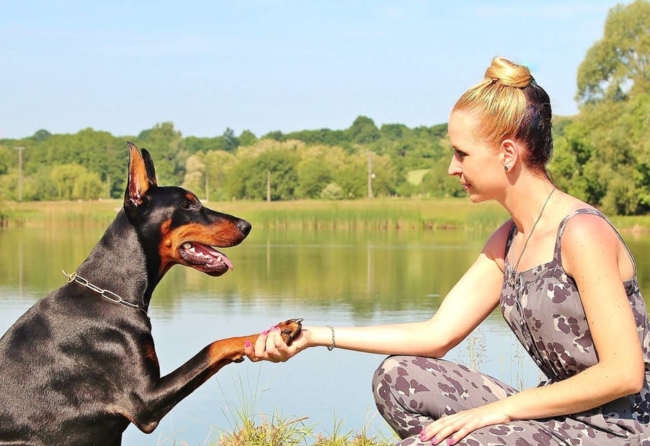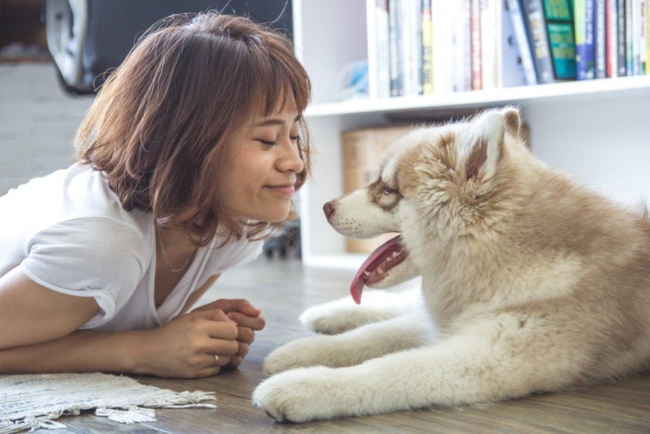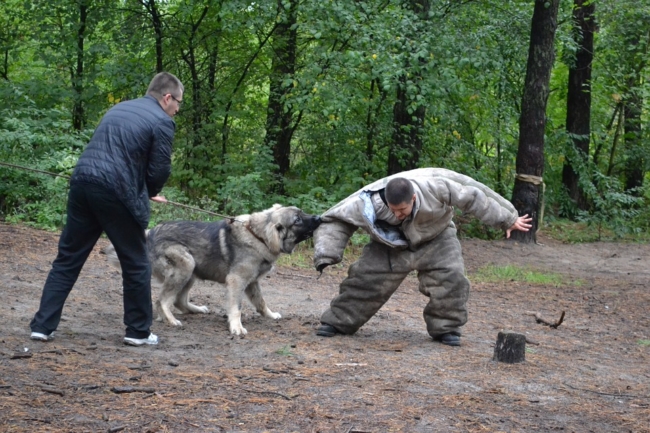Dogs tend to share certain traits with their owners, such as personality and activity levels. According to some dog parents, even looks can be similar. Here you’ll learn what your dog’s behavior can reveal about you as his owner.
There are two main causes for this similarity. The first one is, you’ve probably chosen a pooch that will fit your interests and lifestyle. Secondly, dogs have learned to adapt to live with their humans and they even mimic the owner’s behavior.
Your dog’s behavior can tell about your personality and habits
Some people say that owners of breeds that have a high risk for aggression have aggressive tendencies themselves. There are very few studies that deal with the issue of shared personality traits among pets and their owners. However, one experiment has corroborated the above claim.
Another study published in Applied Animal Behaviour Science was a little more elaborate. It took into account five personality dimensions (neuroticism, extraversion, agreeableness, conscientiousness, openness). The goal was to find common traits among dogs and their owners.

In this study, dog owners gave data that would imply that they have similar personalities on all five accounts. A more objective review given by their families. The second review revealed that these people and their pets are similar on four out of five personality traits.
That means that according to this study, you and your canine friend probably have an 80% personality match.
The traits that most pairs have in common are neuroticism and extraversion. Before you freak out about neuroticism, here are the definitions of these five traits to put things into perspective.
Main personality traits
Neuroticism is the measure of emotional stability. It refers to the degree of sensitivity and nervousness as opposed to being secure and confident.
Extraversion measures whether a person is more sociable and outgoing or solitary and reserved.
Agreeableness refers to friendliness and compassion as opposed to being cold and unkind.
Conscientiousness is a measure of how you handle responsibility. We use it to determine whether you’re hard-working, organized, and efficient or easy-going, careless, and lazy.
Openness measures the degree of curiosity and inventiveness vs. being cautious and consistent. It can also imply intelligence level. This is the trait that’s most likely to show different results for you and your four-legged friend.
If you’re not good at introspection, your dog’s behavior can tell your tale. However, keep in mind that these are general assumptions based on a limited amount of research. The results may not be 100% accurate for everyone.

Key assumptions
The assumptions about similar personalities depend on the choices you made when choosing your dog. If you’ve carefully chosen your companion by assessing how it would fit your lifestyle, you’re more likely to be similar. On the other hand, if you didn’t plan on getting a dog and took one on a whim, you will probably have less in common.
The time you spend with your canine companion has less influence on his personality than you might think.
It’s more likely that you’ve made a more or less conscious decision getting a dog (or dog breed) that has a similar personality to your own.
For example, let’s say you’re the outdoorsy, active type, and you get a Pug instead of a Border Collie. You would soon realize that your pug is not the perfect running partner. And this would never change, no matter how much time you spent together.
This is not to imply that you can never affect the dog’s behavior in any way. If you make certain mistakes while raising your dog, you will encourage negative behavior. This behavior can then become a part of the dog’s personality.
Your dog’s behavior and mood can mirror your own
Through domestication, dogs have developed the skill to understand human gestures and sounds. People have bred dogs that could best understand directions. The result: today these social skills are inherited and are even found in puppies.
By understanding humans, dogs are able to mimic their actions and behavior. Due to this fact, we can often see that abused and mistreated dogs turn into aggressors. You can also destroy the dog’s emotional stability if you are inconsistent, overly emotional or overly protective.
A research conducted by Austrian scientists says that canines can pick up on our negativity and anxiety and show these emotions themselves.

But it’s not just the negativity the dogs can mirror. If you’re emotionally stable, calm, and assertive, chances are your dog’s behavior will be more balanced as well.
Humans have more influence on dogs than the other way around. However, we all know that when we’re under a lot of stress, dogs can help us cope with negative emotions.
According to Dr. Iris Schoberl, dogs are sensitive to our emotional states and may mirror the emotions we are experiencing.
While dogs inherit some social skills, they learn to mimic our actions and emotions. Similar to children, dogs see what we do and start to imitate us. For this reason, the way you interact with your pet is crucial for shaping the dog’s behavior patterns.
Your dog’s behavior reveals how you treat him/her
As we’ve already pointed above, how you treat the dog can, in most cases, affect his or her behavior.
This is what your dog’s behavior can tell about you as an owner.
Setting the rules
The animals don’t understand human etiquette unless you teach them. They don’t understand what’s acceptable and what’s not if you don’t set the rules. You need to stop the dog from jumping up on people, peeing on the carpet, or destroying household items. Otherwise, they will continue to do it.
Is your dog is exhibiting these or similar behaviors? If yes, then maybe you’re not big on rules, you’re indecisive, or inconsistent with training.

Feeding table scraps
Do you have to lock your dog away in another room just so you can have dinner with your friends? This means you’ve made one of the most common pet owner mistakes. You’ve been feeding your dog table scraps. Probably because you couldn’t resist that sad little face.
Pro tip: in the future, just ignore your dog while you’re at the table. It might not be easy at first, but it will save you a lot of trouble in the long run.
Not giving enough attention
Does your four-legged buddy follow you around everywhere tugging your sleeve? If so, the dog’s behavior is the sign he or she bored and needs more attention. Other symptoms of boredom can include chewing your stuff, barking, howling, whining, digging, and even depression. All of these signs can mean that the dog lacks physical and mental stimulation. For whatever reason, you’re not giving your friend enough attention and this can backfire on you if it continues.
Mistreating or not socializing the dog

You should socialize your dogs early on. If they don’t know how to behave around humans and other dogs, they can become fearful, insecure, and even aggressive. Training a dog for fights and reinforcing fear are the biggest mistakes an owner can make. The consequences can be disastrous.


Leave A Comment